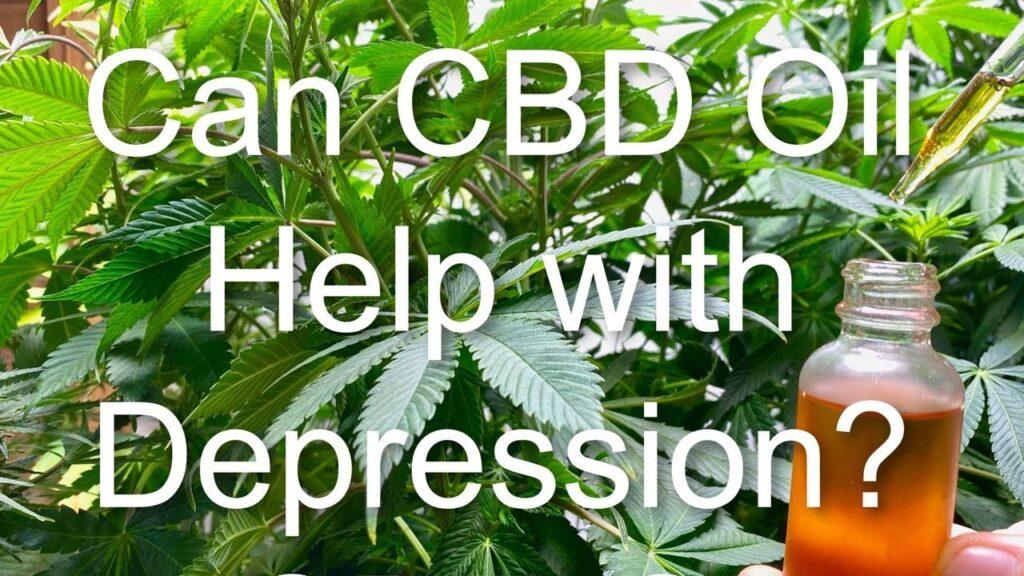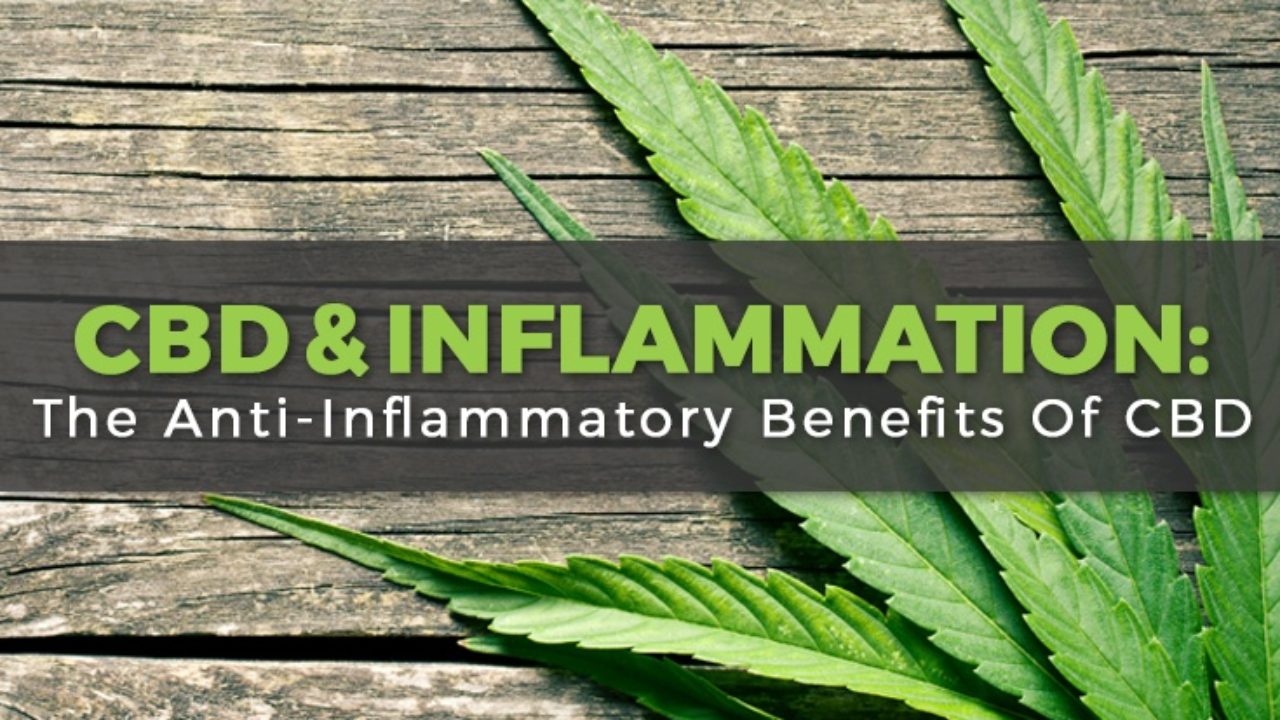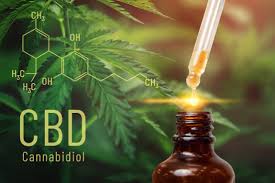In today’s fast-paced and demanding world, it’s no surprise that many people are seeking natural remedies for depression. One such remedy that has gained significant attention is CBD or cannabidiol. CBD is a compound derived from the cannabis plant known for its potential therapeutic properties. In this comprehensive guide, we will explore the potential benefits of CBD for depression and how it may help individuals struggling with this mental health condition.
Depression is a complex and debilitating condition that affects millions of people worldwide. It can manifest in various ways, including persistent sadness, loss of interest in activities, changes in appetite, and difficulty concentrating. Traditional treatment options for depression typically involve therapy and medication. However, these approaches may not work for everyone and can often have unwanted side effects.
However, CBD offers a natural alternative that has been the subject of much research and intrigue in recent years. It is important to note that CBD is non-intoxicating, meaning it does not produce the psychoactive effects commonly associated with cannabis. Instead, it interacts with the body’s endocannabinoid system, a complex network of receptors and neurotransmitters regulating various physiological processes.
Research suggests that CBD may have several potential benefits for individuals with depression. It has been found to affect mood regulation, reduce anxiety, and improve sleep and stress management. These potential benefits make CBD an intriguing option for those seeking alternative approaches to managing their depression.
Throughout this guide, we will delve into the science behind CBD and how it works for depression. We will explore the potential benefits, dosage considerations, and various consumption methods. Additionally, we will touch on CBD’s safety and side effects and provide practical tips for those considering incorporating CBD into their depression management routine.
It is important to note that while CBD shows promise as a potential treatment for depression, it is not a cure-all. Depression is a serious condition that should be addressed with the guidance of a healthcare professional. If you or someone you know is struggling with depression, seeking professional help and considering all available treatment options is essential. With that in mind, let’s dive into CBD and explore its potential benefits for depression.
Understanding Depression
Depression is a complex and often misunderstood mental health condition that affects millions of people worldwide. It is characterized by persistent sadness, hopelessness, and a loss of interest in activities once enjoyed. Depression can impact anyone, regardless of age, gender, or background, and its effects can be long-lasting if left untreated.
Symptoms of depression can vary from person to person, but common signs include a persistent low mood, feelings of worthlessness or guilt, changes in appetite or weight, difficulty concentrating, and thoughts of self-harm or suicide. It’s important to note that experiencing one or two of these symptoms does not necessarily indicate depression, but if several symptoms persist for an extended period, it may be worthwhile to seek professional help.
Regarding traditional treatment options for depression, psychotherapy, and medication are commonly prescribed. Psychotherapy, also known as talk therapy, involves working with a trained therapist to explore and address the underlying causes of depression. This can provide individuals with valuable coping mechanisms and support. Medication, such as antidepressants, may be prescribed by a healthcare professional to help regulate brain chemistry and alleviate symptoms.
While these traditional approaches can be effective for many individuals, some may seek alternative or complementary treatments to manage their depression. This is where CBD comes into the picture. CBD, short for cannabidiol, is a compound derived from the cannabis plant. Unlike its counterpart, THC, CBD does not produce psychoactive effects and is legal in many parts of the world.
In recent years, there has been growing interest in exploring the potential benefits of CBD for depression. Research suggests that CBD may interact with the endocannabinoid system, a complex network of receptors throughout the body that regulates various physiological processes, including mood. By interacting with these receptors, CBD may help restore balance and promote well-being.
Numerous studies have shown promising results regarding the effects of CBD on depression. For example, a study published in the Journal of Clinical Psychology found that CBD effectively reduced anxiety and improved sleep in individuals with depression. Another study published in the Journal of Psychopharmacology showed that CBD exhibited antidepressant-like effects in animal models.
While the research on CBD for depression is still in its early stages, these findings provide a glimpse into the potential benefits of incorporating CBD into depression treatment plans. The following sections will delve deeper into how CBD works for depression, its potential benefits, dosage considerations, safety concerns, and helpful tips for using CBD effectively. So, let’s continue exploring the fascinating world of CBD and its potential as a natural remedy for depression.
Related Articles:
How CBD Works for Depression
When it comes to understanding how CBD works for depression, it’s important to delve into the intricate mechanisms of the body. CBD, or cannabidiol, interacts with the endocannabinoid system, a complex network of receptors and enzymes that play a crucial role in maintaining balance and harmony within the body.
The endocannabinoid system regulates various physiological processes, including mood, appetite, sleep, and pain. It consists of cannabinoid receptors, endocannabinoids (naturally produced by the body), and enzymes that break down these endocannabinoids.
CBD interacts with the endocannabinoid system by influencing the activity of these receptors. It doesn’t directly bind to them but modulates their functioning, leading to a range of potential therapeutic effects. By enhancing the endocannabinoid system’s activity, CBD may help restore balance and alleviate symptoms of depression.
Another way CBD works for depression is through its interaction with neurotransmitters, the chemical messengers in the brain. Research suggests that CBD may increase serotonin levels, a neurotransmitter vital in regulating mood and emotions. Low serotonin levels have been linked to depression, and by enhancing serotonin signaling, CBD may help improve mood and reduce depressive symptoms.
Numerous studies have explored the potential of CBD for depression, with promising results. For instance, a study published in the Journal of Clinical Psychology found that CBD showed potential as an antidepressant and anxiolytic compound. Another study published in Neurotherapeutics highlighted the antidepressant-like effects of CBD in animal models.
While the research on CBD for depression is still in its early stages, these studies provide valuable insights into the potential benefits of CBD as a natural alternative for managing depressive symptoms. However, it’s important to note that further research is needed to fully understand the mechanisms and efficacy of CBD in treating depression.
As with any supplement or treatment option, it’s essential to consult with a healthcare professional before incorporating CBD into your depression management plan. They can provide personalized guidance and help determine the best dosage and consumption method for your needs.
In the next section, we will explore the potential benefits of CBD for depression, including its effects on mood regulation, anxiety reduction, sleep improvement, and stress management. Stay tuned!
*[CBD]: Cannabidiol
Potential Benefits of CBD for Depression
CBD, or cannabidiol, has recently gained popularity as a potential natural remedy for various health conditions, including depression. While research is ongoing, there is growing evidence suggesting that CBD may offer several potential benefits for individuals dealing with depression.
Mood Regulation
One of the potential benefits of CBD for depression is its ability to help regulate mood. Depression is characterized by persistent sadness, hopelessness, and a loss of interest in activities. CBD interacts with the endocannabinoid system in the body, which plays a crucial role in regulating mood and emotions. By modulating the activity of certain receptors in the endocannabinoid system, CBD may help promote a more balanced mood and improve overall well-being.
Anxiety Reduction
Anxiety often coexists with depression, and many individuals with depression also experience anxiety symptoms. CBD has been studied for its potential anti-anxiety effects, and research suggests that it may help reduce anxiety symptoms in individuals with various anxiety disorders. By interacting with receptors in the brain associated with anxiety, CBD may help promote a sense of calmness and relaxation, making it a potential tool for managing anxiety symptoms in individuals with depression.
Sleep Improvement
Sleep disturbances are commonly associated with depression, with individuals experiencing difficulties falling asleep, staying asleep, or experiencing poor sleep quality. CBD has shown promise in promoting better sleep by addressing the underlying causes of sleep disturbances. By reducing anxiety and promoting relaxation, CBD may help individuals with depression achieve more restful sleep. CBD may also interact with receptors involved in the sleep-wake cycle, potentially regulating sleep patterns and improving overall sleep quality.
Stress Management
Chronic stress contributes to the development and worsening of depression symptoms. CBD has been studied for its potential stress-reducing properties, with research suggesting that it may help modulate the body’s stress response. By interacting with receptors in the brain associated with stress, CBD may help reduce stress levels and promote a sense of calmness. This can be particularly beneficial for individuals with depression who experience heightened stress levels.
While CBD shows promise as a potential natural remedy for depression, it is important to note that it is not a cure-all solution. It is always recommended to consult with a healthcare professional before incorporating CBD into your depression treatment plan. They can help determine the appropriate dosage consumption method and monitor your progress to ensure optimal results.
In the next section, we will explore different CBD dosage options and consumption methods to help you find the right approach for your needs. Stay tuned!
CBD, or cannabidiol, has recently gained popularity as a potential natural remedy for various health conditions, including depression. While research is ongoing, there is growing evidence suggesting that CBD may offer several potential benefits for individuals dealing with depression.
Mood Regulation
One of the potential benefits of CBD for depression is its ability to help regulate mood. Depression is characterized by persistent sadness, hopelessness, and a loss of interest in activities. CBD interacts with the endocannabinoid system in the body, which plays a crucial role in regulating mood and emotions. By modulating the activity of certain receptors in the endocannabinoid system, CBD may help promote a more balanced mood and improve overall well-being.
Anxiety Reduction
Anxiety often coexists with depression, and many individuals with depression also experience anxiety symptoms. CBD has been studied for its potential anti-anxiety effects, and research suggests that it may help reduce anxiety symptoms in individuals with various anxiety disorders. By interacting with receptors in the brain associated with anxiety, CBD may help promote a sense of calmness and relaxation, making it a potential tool for managing anxiety symptoms in individuals with depression.
Sleep Improvement
Sleep disturbances are commonly associated with depression, with individuals experiencing difficulties falling asleep, staying asleep, or experiencing poor sleep quality. CBD has shown promise in promoting better sleep by addressing the underlying causes of sleep disturbances. By reducing anxiety and promoting relaxation, CBD may help individuals with depression achieve more restful sleep. CBD may also interact with receptors involved in the sleep-wake cycle, potentially regulating sleep patterns and improving overall sleep quality.
Stress Management
Chronic stress contributes to the development and worsening of depression symptoms. CBD has been studied for its potential stress-reducing properties, with research suggesting that it may help modulate the body’s stress response. By interacting with receptors in the brain associated with stress, CBD may help reduce stress levels and promote a sense of calmness. This can be particularly beneficial for individuals with depression who experience heightened stress levels.
While CBD shows promise as a potential natural remedy for depression, it is important to note that it is not a cure-all solution. It is always recommended to consult with a healthcare professional before incorporating CBD into your depression treatment plan. They can help determine the appropriate dosage consumption method and monitor your progress to ensure optimal results.
In the next section, we will explore different CBD dosage options and consumption methods to help you find the right approach for your needs. Stay tuned!
CBD Dosage and Consumption Methods
When using CBD for depression, finding the right dosage and consumption method is crucial for achieving optimal results. CBD, or cannabidiol, is available in various forms, such as oils, tinctures, capsules, gummies, and more. Each form has unique benefits and considerations, so it’s important to understand the differences and choose the one that best suits your needs.
Finding the Right Dosage
Determining the right CBD dosage for depression can be a trial-and-error process, as it varies from person to person. It’s advisable to start with a low dosage and gradually increase it until you find the desired effects. This approach allows you to gauge your body’s response to CBD and avoid any potential side effects from taking too much.
To find your ideal dosage, it’s recommended to consult with a healthcare professional or do thorough research on reputable sources. Factors such as weight, metabolism, and the severity of your symptoms can influence the appropriate dosage. Additionally, considering the concentration of CBD in the product you’re using is essential. CBD oils, for example, often come in different strengths, ranging from 250mg to 1500mg per bottle. Starting with a lower potency and gradually increasing it can help you find the right balance.
Different Forms of CBD
CBD is available in various forms, each offering its advantages and considerations. Here are a few popular options:
- CBD Oils and Tinctures: These are the most common forms of CBD, typically taken sublingually (under the tongue). They are known for their fast-acting effects and easy dosage control. You can find various flavors and concentrations to suit your preferences.
- CBD Capsules: Capsules are a convenient and discreet way to consume CBD. They provide a pre-measured dosage and can be easily added to your daily supplement routine.
- CBD Gummies and Edibles: CBD-infused gummies and edibles offer a tasty and enjoyable way to incorporate CBD into your routine. They come in various flavors and shapes, making them a popular choice for those who prefer a more enjoyable experience.
- CBD Topicals: Topical CBD products, such as creams, lotions, and balms, are designed to be applied directly to the skin. They are often used for localized relief, targeting specific body areas.
Choosing the Right Consumption Method
Choosing the right consumption method depends on your preferences, lifestyle, and desired effects. If you’re looking for quick relief, sublingual oils and tinctures are popular due to their fast absorption into the bloodstream. On the other hand, if you prefer a more discreet option, capsules or gummies may be more suitable.
Consider factors such as onset time, convenience, and duration of effects when selecting a consumption method. It’s also worth noting that different methods may have varying bioavailability, meaning the amount of CBD that actually reaches your bloodstream. For example, vaping CBD provides rapid effects but may have higher bioavailability than oral consumption methods.
Overall, finding the right dosage and consumption method is a personal journey. It’s important to listen to your body and adjust accordingly. Remember to consult with a healthcare professional or do thorough research to ensure you’re making informed decisions.
Now that we’ve explored the dosage and consumption methods let’s delve into CBD’s safety and potential side effects for depression.
Safety and Side Effects
When considering any new treatment option, it’s crucial to prioritize safety. CBD, or cannabidiol, is generally well-tolerated by most individuals, but it’s important to understand that it may not be suitable for everyone. Before incorporating CBD into your depression management plan, it’s essential to be aware of the potential side effects and any interactions it may have with medication.
Is CBD safe for everyone?
While CBD is generally considered safe, it’s important to note that individual responses to the compound can vary. Some people may experience side effects, while others may not. Factors such as dosage, individual sensitivity, and overall health can influence how an individual responds to CBD.
It is highly recommended to consult with a healthcare professional before starting a CBD regimen, especially if you have any pre-existing medical conditions or are taking medication. They can provide personalized guidance based on your specific health needs, ensuring CBD is a safe option.
Potential side effects
CBD is known for its favorable safety profile, with most people experiencing minimal side effects, if any. However, it’s important to be aware of the potential side effects that have been reported. These side effects are generally mild and temporary, but monitoring how your body responds to CBD is crucial.
Some common side effects that have been reported include:
- Dry mouth: CBD may reduce saliva production, leading to a dry or cotton-mouth sensation. Staying hydrated can help alleviate this discomfort.
- Fatigue: CBD has been reported to cause drowsiness in some individuals. If you experience fatigue, adjusting your dosage or taking CBD before bedtime is advisable to avoid any potential impact on daily activities.
- Changes in appetite: CBD may affect your appetite, causing an increase or decrease in hunger. Monitoring your food intake and adjusting your diet can help manage these changes.
It’s important to note that everyone does not experience these side effects, and may vary in intensity from person to person. If you experience any severe or persistent side effects, it’s essential to consult with a healthcare professional.
Interactions with medication
CBD can interact with certain medications, so it’s crucial to consult with a healthcare professional before incorporating it into your routine. CBD can inhibit certain enzymes responsible for metabolizing drugs, potentially leading to altered effects or increased medication concentrations in the bloodstream.
Some medications that may interact with CBD include:
- Blood thinners: CBD has the potential to interact with blood-thinning medications, such as warfarin, increasing the risk of bleeding.
- Antidepressants: CBD may have additive effects when combined with certain antidepressants, potentially increasing the risk of side effects.
- Antiepileptic drugs: CBD can interact with antiepileptic drugs, potentially altering the efficacy of these medications.
By consulting with a healthcare professional, you can discuss potential interactions and ensure CBD is safe to use alongside your current medication regimen. They can provide personalized guidance and monitor your progress to ensure optimal safety and efficacy.
Remember, while CBD shows promise as a natural option for managing depression, it’s essential to prioritize safety and seek professional guidance. By doing so, you can make informed decisions about incorporating CBD into your depression management plan, maximizing its benefits and minimizing potential risks.
[cbd side effects]: https://www.mrmeangreen.com/cbd-side-effects
[cbd interactions]: https://www.mrmeangreen.com/cbd-interactions
Tips for Using CBD for Depression
When using CBD for depression, remember several tips to ensure a safe and effective experience. Consulting with a healthcare professional is highly recommended before starting any new treatment, including CBD. They can provide personalized guidance based on your specific needs and medical history.
Another important tip is to start with low doses of CBD. Every individual is unique, and their response to CBD may vary. By starting with a low dose, you can gauge how your body reacts and gradually increase the dosage if needed. This approach allows you to find the optimal dose that works best for you.
Monitoring your progress is crucial when using CBD for depression. Keep track of changes in your mood, anxiety levels, sleep patterns, and overall well-being. This will help you assess the effectiveness of CBD and make any necessary adjustments to your dosage or treatment plan.
In addition to using CBD, it’s important to consider other lifestyle changes that can support your mental health. Regular exercise, stress-reducing techniques such as meditation or yoga, and a balanced diet can all contribute to overall well-being.
While CBD has shown promise in helping with depression, it’s important to note that it is not a cure-all solution. It should be used as part of a comprehensive approach to mental health, which may include therapy, medication, and other supportive measures.
By following these tips, you can maximize the potential benefits of CBD for depression and take proactive steps toward improving your mental well-being.
Click here to learn more about CBD and its potential benefits for various health conditions.
Conclusion
In conclusion, CBD holds significant promise as a potential natural remedy for depression. Its ability to interact with the endocannabinoid system and influence neurotransmitters like serotonin and dopamine may contribute to its mood-regulating properties.
Research has shown that CBD may help alleviate symptoms of depression, including anxiety, sleep disturbances, and stress. By promoting a sense of calm and relaxation, CBD may provide relief for individuals struggling with depression.
When considering CBD as a treatment option, consulting with a healthcare professional who can provide personalized guidance is crucial. Starting with low doses and closely monitoring one’s progress is essential to finding the optimal dosage and ensuring maximum effectiveness. It is also important to consider other lifestyle changes, such as implementing stress-management techniques and engaging in regular exercise, to support overall mental well-being.
While CBD appears to be generally safe for most individuals, it is important to be aware of potential side effects, such as fatigue, dry mouth, and changes in appetite. Additionally, CBD may interact with certain medications, so discussing any potential interactions with a healthcare professional is crucial.
As the popularity of CBD continues to grow, more research is being conducted to understand its efficacy and safety better. It is important to stay informed about the latest developments in CBD research and be aware of the legalities surrounding its use in your area.
Overall, CBD offers a natural alternative to traditional treatment options for depression, and its potential benefits make it worth exploring for individuals seeking relief from this debilitating condition. Remember, finding the right approach to managing depression is a personal journey, and CBD may be a valuable tool in your arsenal of self-care strategies.
For more information on CBD, its benefits, and other related topics, check out Mr. Mean Green’s blog for valuable resources and insights.





